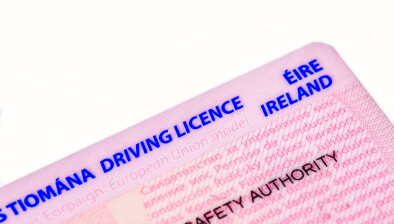Court of Appeal: No obligation to warn of ramifications of giving blood or urine sample

The Court of Appeal has affirmed the answers of the High Court given in response to a case stated concerning whether fair procedures require Gardaí to warn of the ramifications of electing to provide a blood or urine sample pursuant to a request under s.12(1)(b) of the Road Traffic Act 2010.

About this case:
- Citation:[2025] IECA 197
- Judgment:
- Court:Court of Appeal
- Judge:Mr Justice Anthony Collins
Delivering judgment for the Court of Appeal, Mr Justice Anthony M. Collins confirmed: “The appellant was charged under s. 4(1) RTA 2010, proof of which does not require evidence of the presence of a given concentration of an intoxicant in a sample of an accused person’s blood or urine. That the appellant might have demonstrated that the concentration of an intoxicant other than alcohol in his blood was below the limit prescribed by law was therefore irrelevant…”
Background
The appellant, Mr Tobin, appeared at a sitting of the District Court to answer an allegation that on 21 March 2018, at Supervalu in Celbridge, Co Kildare, he drove a mechanically propelled vehicle whilst under the influence of an intoxicant to such extent as to be incapable of having proper control over his vehicle.
The appellant attracted the attention of gardaí when he was observed inter alia putting on his seatbelt in traffic and driving erratically. Gardaí alleged that the driver’s speech was slurred, his eyes bleary and that he was unsteady on his feet.
The appellant was breathalysed and his breath sample having been returned positive for the presence of an intoxicant, a caution was administered to the appellant and he was conveyed to Leixlip Garda Station. The appellant admitted to having consumed two drinks before driving.
An attempt to take a breath specimen having failed due to a malfunction of the evidential breath analyser, a requirement was then made of the appellant pursuant to s. 12(1)(b) of the Road Traffic Act 2010 to give a specimen of blood or urine, with the penalties for refusing to comply being outlined to him. The appellant opted to provide a specimen of his urine.
Thereafter, a certificate issued which disclosed the presence of 47 mg of alcohol per 100 ml of urine, below the threshold in s. 4(3)(a) of the 2010 Act. A further certificate issued subsequently confirming the presence of cannabinoids in the sample of urine that the appellant had provided.
The District Court
Before the District Court, the appellant’s solicitor applied for a direction of ‘no case to answer’ on grounds that the failure to explain to the appellant that only a blood sample is analysed for the concentration of an intoxicant under s. 4(1A) of the 2010 Act had led to his client facing a charge under s.4(1) instead, by reason of which he was at risk of being subject to a substantially longer period of disqualification in the event of conviction.
The District Court rejected that application and convicted the appellant under s.4(1) of the 2010 Act, leading to the imposition of a fine and his disqualification from driving for 4 years. The appellant requested the District Court to state a case to the High Court.
The High Court
The District Court asked the High Court, inter alia, whether it was correct to accept that fair procedures had been afforded to the appellant where the ramifications of his decision to opt between a blood or urine sample were not explained to him, and in circumstances where the appellant had been informed of his right to access a solicitor and had opted not to invoke that right, whether fair procedures dictate that a member of gardaí, once the relevant legal requirement is made to provide a sample of blood or urine, should inform him of the ramifications of which sample he provides?
The High Court answered the first question in the affirmative and the second question in the negative.
The Court of Appeal
On appeal to the Court of Appeal, the appellant submitted that the issue to be determined was whether a member of gardaí, when making a demand of a person pursuant to s.12(1)(b) of the 2010 Act for a specimen of his blood or urine following from his arrest on suspicion of drink or drug driving, should inform the arrested person that if he elects to provide a specimen of his urine then it will not be possible to analyse it for the concentration of the drug, should a drug be detected, and that will only be analysed for the presence of a drug.
In response to questions from the bench, the appellant further clarified that persons arrested as aforesaid should be warned that “blood will be analysed for both the presence and concentration of various drugs and that urine will be analysed for the presence of various drugs only, and nothing further than that…”
Mr Justice Collins explained that the constituent elements of an offence under s.4(1) of the 2010 Act do not require proof of the presence of an identifiable level of an intoxicant in a sample of a person’s blood or urine, and so it was difficult to understand how the utterance of the suggested warning described would assist in his defence other than that its absence, if required by law, would ground an application of “no case to answer”.
The judge highlighted that the appellant’s submissions appeared to suggest that where a person might not have committed a “concentration” offence, it is inconsistent with fair procedures that the respondent charge him with an offence of having been incapable of driving a motor vehicle.
Mr Justice Collins determined that that submission had already been answered in the High Court’s judgment, which explained:
“Charging is a matter for the Director of Public Prosecutions. No defendant has a legitimate expectation that the Director of Public Prosecutions will elect not to charge for a particular offence if there is potential evidence which supports conviction on that charge. The Director of Public Prosecutions is not obliged by law to elect to prosecute on either s.4(1) or s.4(1A), (2), (3) or (4) of the 2010 Act. The same set of facts may support convictions for a ‘drunk driving’, ‘over the limit for scheduled drugs driving’ and ‘over the limit for alcohol’ driving.”
The judge considered that without proof of any actual prejudice suffered due to the absence of the warning contended for by the appellant, the appellant was driven to contend that fair procedures required that where a demand was made under s.12(1)(b) of the 2010 Act, the delivery of such a warning was mandatory as a matter of law.
The court, having analysed the four authorities advanced by the appellant in support of that proposition, found that those authorities instead appeared to support the proposition that in the context of prosecutions for offences created under the statutory framework in the 2010 Act, a person who is lawfully required to provide evidence that might incriminate him or who, as a result of his action or inaction, is at risk of committing an offence or of being deprived of the benefit of a constitutionally protected defence, is entitled to be warned of the penal consequences that may flow from his acts or omissions.
The court emphasised that outside of those particular circumstances, the law imposes no other obligation upon gardaí to provide information to persons suspected of having committed offences thereunder.
Conclusion
Accordingly, the Court of Appeal dismissed the appeal, finding that the appellant had not demonstrated that fair procedures required that gardaí deliver the suggested warning as a matter of law when making a demand of a person pursuant to s.12(1)(b) of the 2010 Act, and answering the first question in the affirmative and the second question in the negative.
Director of Public Prosecutions v Tobin [2025] IECA 197










